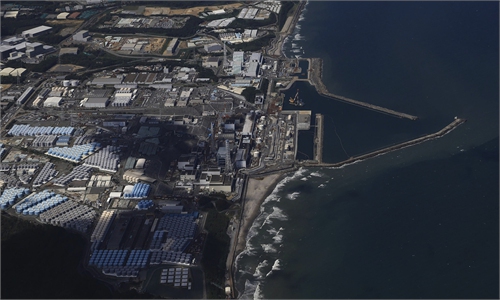
Microphone Photo: VCG
In recent years, with the rapid increase in China's international reputation and influence, issues related to China have become a "standard feature" in major international forums. Whether discussing macro issues such as international order or micro policies such as regional hotspots, China is an important factor that cannot be ignored. However, it is interesting that in these international forums involving China issues, Chinese scholars and Chinese voices seem to be either absent or too few.Recently, I attended the 9th Forum of Annual International Conference about the Middle East organized by the Middle East Political and Economic Institute in Romania. The scholars were mainly from the Middle East and Europe. But unlike before, there were two Chinese scholars, including myself, present, which also aroused strong interest from other participants and the media.
In the keynote speeches of the conference, whether it was about the resumption of diplomatic relations between Saudi Arabia and Iran, the "reconciliation wave" in the Middle East, the Middle East's cooperation with the BRICS, or the Shanghai Cooperation Organisation, the word "China" was repeatedly mentioned. When discussing the Israel-Palestine conflict, many participants called for China to play a more active and constructive role. It is on such a diverse international occasion that one deeply realizes the close connection between China and the world, as well as the expectations of the outside world for China to continue to promote peace and reconciliation in the Middle East.
Previously, it seemed unimaginable that China would become the "protagonist" in an international conference with the Middle East as its theme. There may be two main reasons for this: First, China has provided a new choice for the Middle East. This choice is not about geopolitical alignment and taking sides, but a new option for peace and development. Surprisingly, many Middle Eastern scholars are familiar with the concept of a global community of shared future and the "three initiatives," namely the Global Development Initiative, the Global Security Initiative and the Global Civilization Initiative, and they do see these initiatives as new approaches to peace and prosperity.
Second, China and the Middle East can empathize with each other. At the forum, Syrian and Lebanese scholars mentioned China's historical suffering and isolation in modern history when discussing the current plight of Palestine. This emotional resonance led them to believe that China will always stand for international justice and fairness.
During the communication, many scholars expressed that the first sentence of my speech left a deep impression on them: "China is often discussed on many occasions, but it seems that the Chinese people are absent, so we came here to present a tangible China to you." Regardless whether they hold a positive or negative attitude toward China, they seem to acknowledge that it is crucial to directly listen to voices from China.
Of course, the communication also involved misunderstandings and stereotypes about China. Some European scholars at the meeting mentioned the "China threat theory" and criticized China's system. However, interestingly, many faces that were initially confrontational behind the screen seemed to become gentler in face-to-face communication. Everyone seems to have realized that China should not be stereotyped. Due to the difficulty in accessing information sources other than mainstream Western media, they expressed great interest in listening to and accepting new interpretations or discussions on China-related issues.
China's every move has a direct impact on the international situation, which cannot be ignored. However, the fervor I felt at the conference also reflects that in reality, it is still difficult to get a Chinese perspective. This lack of Chinese voices is due to both the structural obstacles of the international public opinion system, which makes it difficult for China's position to be heard, as well as the low "volume" of our voices toward the world. We need to tell China's story well and improve our ability to spread China's messages globally, and an important prerequisite of this is that more Chinese people must appear on the global stage and make their voices heard. Scholars have an important role to play in making this happen.
If China's image in the past was subject to the perception others had of China, then it is now time to make up for this deficiency. If China doesn't shape its own image, then the gap will naturally be filled by others. My two intuitive feelings of this conference are: First, China has changed, and its influence and voice in the world are rapidly rising; second, the world has changed, and the global community no longer believes in one-sided information channels, but wants to listen to China. This is a huge opportunity and a tough task. By engaging in more frequent and effective communications, we can build more bridges with the world and gain more trust.
The author is an assistant researcher at the Department for Developing Countries Studies at the China Institute of International Studies. opinion@globaltimes.com.cn

